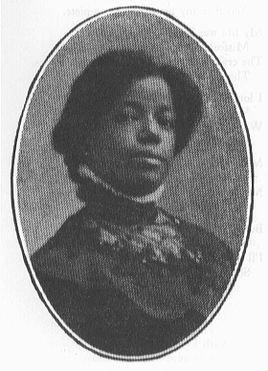Olivia Ward Bush-Banks and New Negro IndigeneityPosted in Articles, Literary/Artistic Criticism, Media Archive, Native Americans/First Nation, United States on 2022-02-01 23:19Z by Steven |
Olivia Ward Bush-Banks and New Negro Indigeneity
MELUS: Multi-Ethnic Literature of the United States
Volume 45, Issue 3, Fall 2020
pages 104–128
Published: 03 July 2020
DOI: 10.1093/melus/mlaa033
DeLisa D. Hawkes, Assistant Professor of English
University of Texas, El Paso
Among New Negro Renaissance greats such as Zora Neale Hurston, Countee Cullen, Langston Hughes, Paul Robeson, and Wallace Thurman, early twentieth-century African American newspapers referred to the Afro-Montauk Olivia Ward Bush-Banks as “the grand dame of the literati” (Byrd A8).1 Her poetry and plays often feature representations of African American and Native American life and speculate on the ways these groups’ interactions with each other influenced cultural and racial identity formation. The few scholars that remember her name today might argue that her earlier works reflect on her African-Native American heritage, while her later works focus exclusively on her African American culture (Grant).2 However, Bush-Banks’s writings on self- and imposed identities, spanning from the 1890s to the 1940s, challenge ideas about indigeneity, race, and…
Read or purchase the article here.
